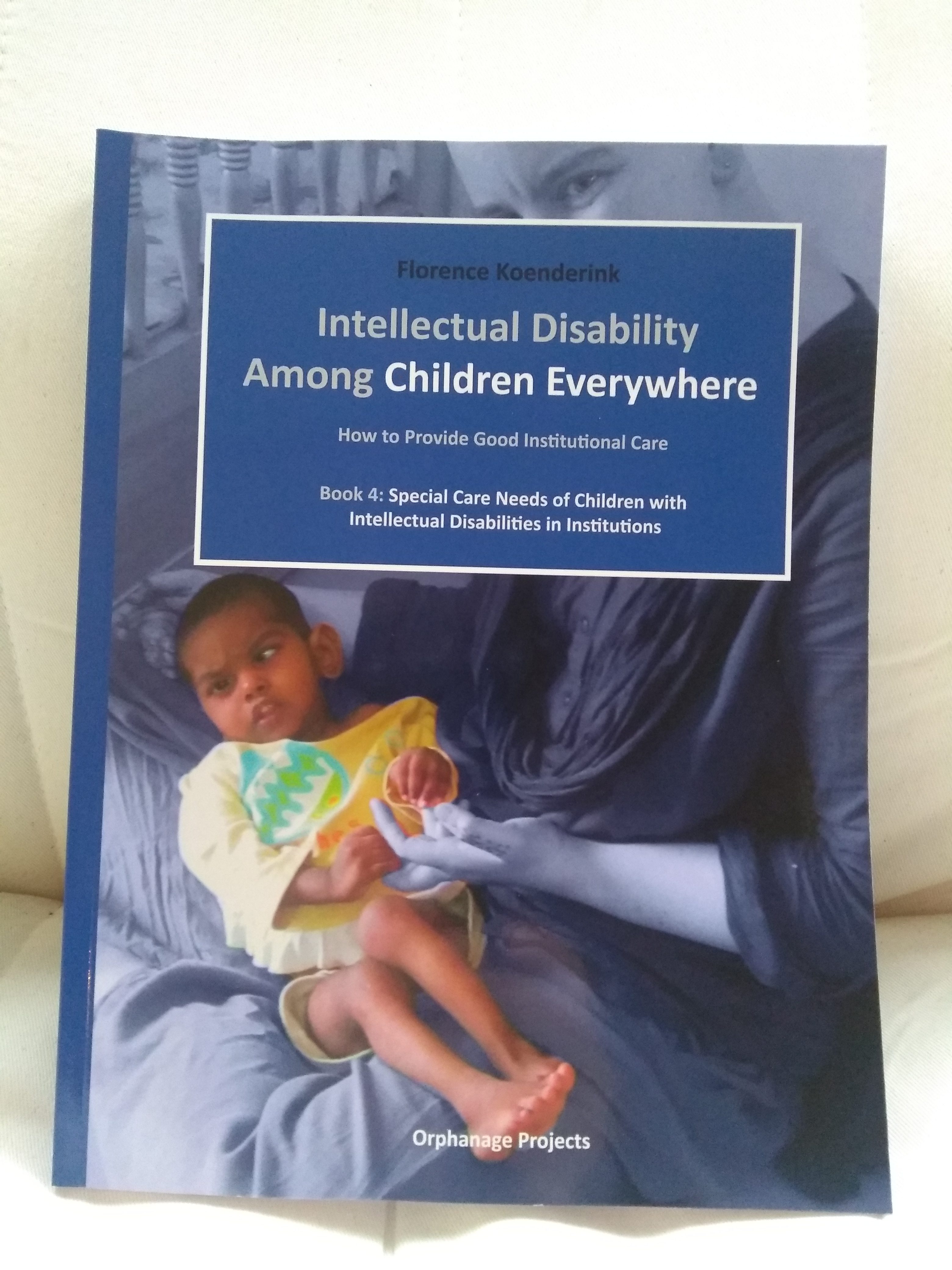This week the latest manual, the fourth in the series ‘Children Everywhere’, has come out. Originally, it was written for the NGO Orphanage Projects, giving advice to people running institutions on how to provide better care to children with intellectual disabilities. The writing and publishing of a manual do not happen in the space of a day or a week, so it was written well before any plans of folding Orphanage Projects and starting Why Family-Based Solutions occurred to me.
This does not mean that the book is no longer relevant, however. First of all, there are still many, many institutions caring for children with intellectual disabilities, without necessarily being quite aware of the needs of these children. But secondly, although written for institutional situations, the manual can play an important role in family-based care too.

I sincerely hope that the institutionalisation of children with disabilities will come to an end sooner rather than later, and that with increased community services, parental support and inclusive education far more children with disabilities will be cared for by their families. However, there will continue to be a need for some alternative care for children with complex special needs, and particularly for those with severe and profound intellectual disabilities.
To make sure these children get the care they need, just handing them over to a random foster family will not be good enough. Foster families and small group home caregivers need to be given specialised training to make sure that they are aware of the needs of the children and of how to meet them. This is where ‘Intellectual Disabilities Among Children Everywhere’ can play an important role, as a training manual.
The manual consists of three parts. In Part 1, an explanation is given of what is meant by ‘intellectual disability’, and of the physical and behavioural issues that you are likely to encounter, how to deal with them and how to help children become as independent as possible. It also includes a chapter on effective disciplining, without using corporal punishment. In Part 2, conditions regularly associated with intellectual disabilities, such as cerebral palsy, Down’s syndrome, autism, seizure disorders and mental health problems, are discussed. And in Part 3 of the book, structures of management and set up of institutions are discussed, necessary therapies, as well as the kind of training needed for caregivers and the advice to consider moving to family-based solutions.
If you are interested, you can order the manual HERE.

